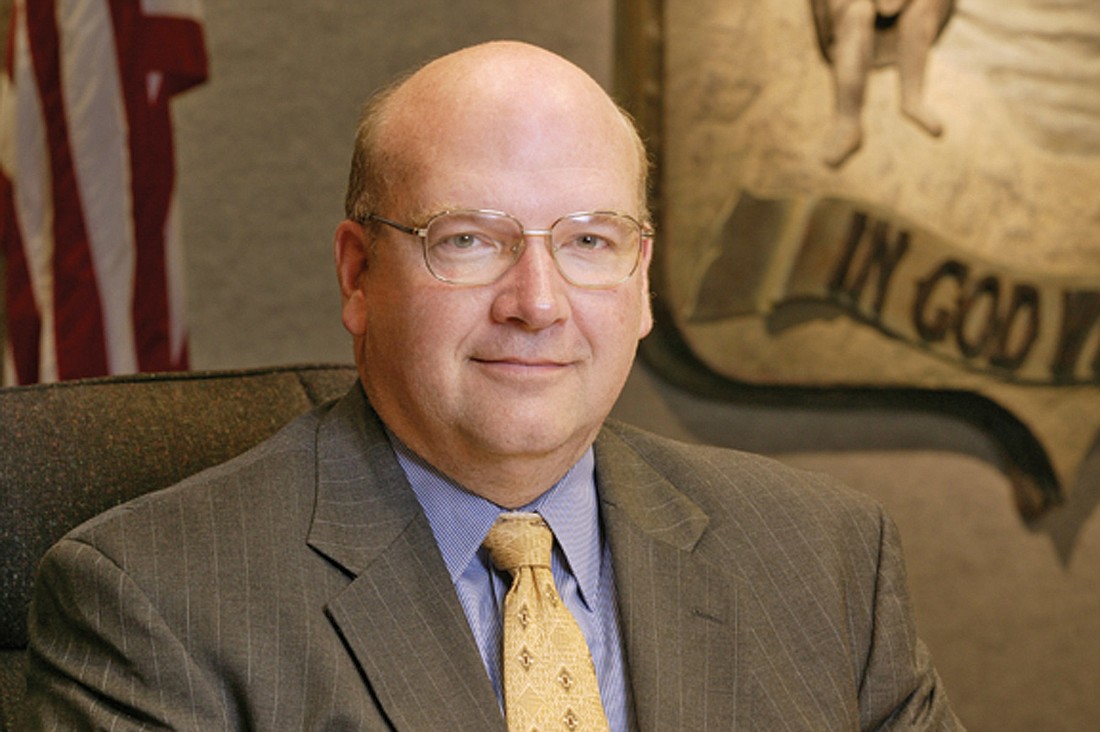- November 28, 2024
-
-
Loading

Loading

During the Sarasota County Council of Neighborhood Associations meeting Monday, new Sarasota County Administrator Randall Reid fielded complaints about poor county practices in engaging the public on issues, including the revision of the county’s Comprehensive Plan.
Reid wrote vigorously in a notepad, as the CONA members posed questions and offered their thoughts on county initiatives — or the lack thereof.
In his opening remarks, Reid told the audience of more than 40 people at the Sarasota Garden Club that his first major goal is to re-establish Sarasota County as a premier county, with high ethical standards, in the wake of the procurement scandal that led to his hiring last year.
Reid displayed a poster showing one shriveled apple in a bushel of the fruit. He said he had emailed the poster to county employees last week, as a reminder of his ongoing ethics initiative.
“One rotten apple can spoil the entire bushel,” Reid said. “I will constantly be reminding my employees how their work reflects this great county.”
CONA President Lourdes Ramirez presented Reid and Sarasota County Commissioner Nora Patterson with members’ three primary concerns regarding Sarasota County:
• Ensuring adequate communication with residents as staff works on Sarasota County Comprehensive Plan changes. Ramirez said CONA members want to make sure the final document provides sufficient protections for neighborhoods, so they can maintain a good quality of life.
• Making sure government actions are transparent. CONA members said the county had had a poor track record on that point in the past, but the situation had been improving, as county officials work to put the procurement scandal behind them.
• Providing more opportunities for public participation in county initiatives. CONA members said the county also had a bad track record of holding important workshops during the off-season, when many residents are out of town.
“We have trouble understanding the comp-plan language revisions, the agendas are hard to understand and workshops provide too much legalese in them,” Ramirez said.
Sarasota County resident Dawn Moore agreed.
“The comp-plan workshops seem to have a preconceived agenda,” Moore said. “There’s a feeling staff has already reached their foregone conclusions, and we’re just a roadblock on their way to the approval process.”
Reid conceded it is a common problem for residents to have difficulty understanding facets of a process as complex as updating the Comprehensive Plan.
“We’re going to continue to struggle with the comp-plan process, because it’s the central policy of the county and words are very important in it,” Reid said. “I will be immersed in these discussions and will be in the center of your three issues. We need to protect communities and help neighborhoods become stronger.”
Patterson agreed, adding that residents usually are much less aware of the process for crafting comp-plan changes than they are of the methods involved in zoning-designation changes, because the latter almost literally affect their backyards.
Ed Wolfe, a retired Sarasota County planner, said county staff needs to come up with a better way to inform the public about Comprehensive Plan changes. For example, he said, staff could provide proposed changes in an easy-to-read format, with clear explanations about the effects the changes would have.
“While you are in control of local government, because you elect people,” Patterson said, “the scary thing to me is (that) state and regional planning councils have not allowed municipalities to have control over huge pieces of their development.”
Adding that she is frustrated with planning on the state level, Patterson said, “I believe the teeth have been taken out of the state process, and local governments are more limited by … (legislation) the state has passed recently.”
On another point, Arlington Park resident Virginia Hoffman urged Reid to investigate the situation, then work with the federal government to ensure that the tall vegetation is cut back beside the railroad tracks north of Fruitville Road and along 10th Street, through North Sarasota.
“There’s a constant stream of transients and crime; that’s a highway for this bad element,” Hoffman said. “We’ve had fires and a break-in over there, and we need help before it gets worse.”
Palmer Ranch resident Margaret Brading urged Reid to consider building concrete platforms at bus stops in south Sarasota County, because people have to wait in ditches for buses to arrive.
Other audience members complained that the Sarasota County Area Transit System provides inadequate service in parts of the county, especially along North Tamiami Trail.